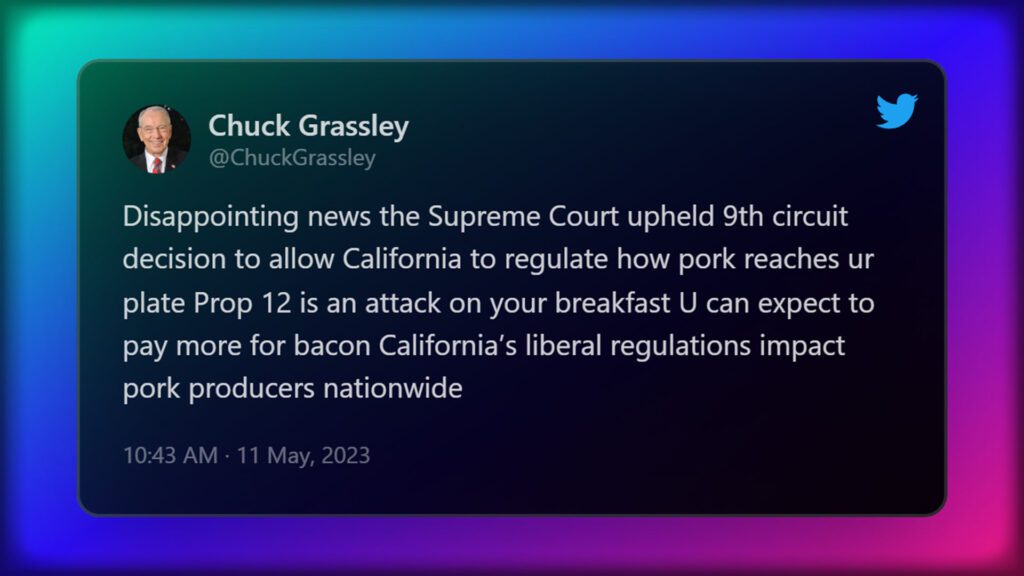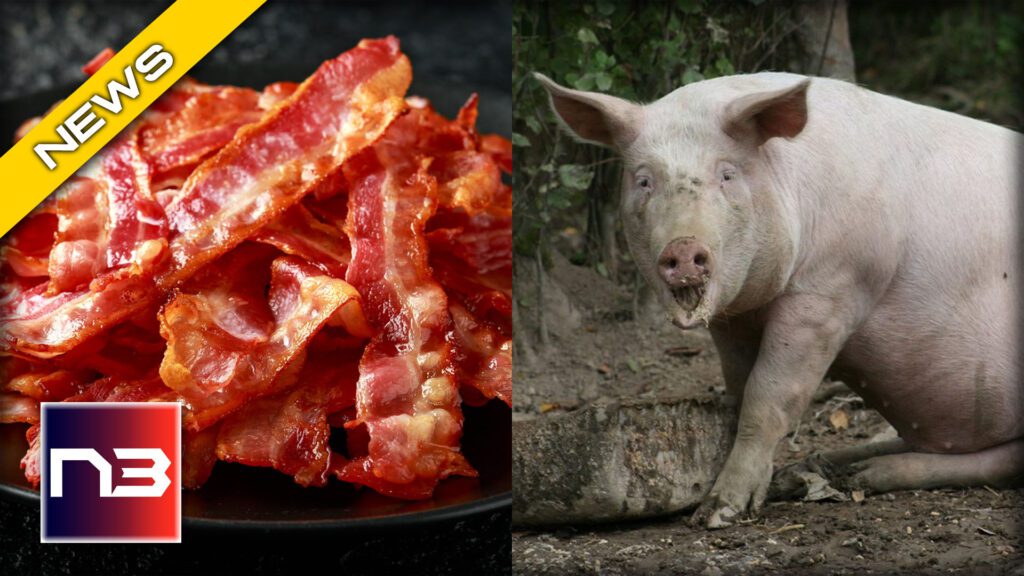The Supreme Court just made a decision that could change the way you eat pork forever. In a 5-to-4 ruling, the Court upheld California’s Proposition 12, a controversial ballot measure that bans the sale of pork in the state from anywhere that confines pregnant pigs to tight “gestation crates.” This decision is a significant loss for the pork industry, which has spent years fighting the measure. But what does it mean for you? Is your bacon at risk? And what does this ruling say about the balance of power between states and the federal government? We have all the details, stay tuned.
The Supreme Court’s decision to uphold Proposition 12 has sparked a heated debate over the balance of power between states and the federal government. For the pork industry, the ruling is a significant loss. Agriculture groups have argued that if the California law was upheld, it would not be long before other states adopted separate requirements, making it difficult for producers to meet a maze of regulations.


Republican lawmakers have expressed their disappointment with the decision, arguing that it sets a dangerous precedent for states to dictate production standards for the entire country. Chuck grassley took to twitter to express his outrage, and told us all that we will be spending more money on pork nation wide.
House Agriculture Committee Chairman Glenn “GT” Thompson (R-PA) issued a statement saying, “U.S. producers simply cannot operate in a system where one state can dictate production standards for the entire country.”
The pork producers brought the appeal to the Supreme Court, claiming Proposition 12 violates the Interstate Commerce Clause of the U.S. Constitution. However, the Court disagreed, with IMG>>> Justice Neil Gorsuch writing in the majority opinion, “Companies that choose to sell products in various states must normally comply with the laws of those various states.” Gorsuch went on to say that while no state may use its laws to discriminate purposefully against out-of-state economic interests, the pork producers “invite us to fashion two new and more aggressive constitutional restrictions on the ability of states to regulate goods sold within their borders. We decline that invitation.”
Animal rights advocates have celebrated the decision, calling it a victory for animal welfare. Proposition 12 not only bans the sale of pork from breeding pigs confined in stalls so small they cannot lie down, stand up, or turn around, but also has freedom of movement standards for veal calves and hens.
So what does this ruling mean for you? If you live in California, it means that the pork products you buy will have to meet certain animal welfare requirements. If you live outside of California, it means that the pork industry will have to comply with a patchwork of different state regulations, potentially driving up costs for producers and consumers alike.
The debate over Proposition 12 is far from over, with both sides already gearing up for the next battle. But for now, the Supreme Court’s decision stands.
The Supreme Court’s ruling on Proposition 12 has thrown the balance of power between states and the federal government into question. For the pork industry, the decision is a significant loss, while animal rights advocates are celebrating a victory for animal welfare. Republican lawmakers have expressed their disappointment with the ruling, arguing that it sets a dangerous precedent for states to dictate production standards for the entire country. The debate over Proposition 12 is far from over, and the decision could have significant implications for the American food industry. Stay tuned for more updates on this developing story. And make sure to tap subscribe below to stay informed on the latest news.
Let’s continue this conversation, in the comments below.



